Yunnan Tea Tours offer visits to the most renowned tea mountains and plantations in Yunnan Province, the birthplace of Pu’er Tea and Dianhong Black Tea. Wondering how to organize a tea tour in Yunnan? The Yunnan Tea Travel Tips will be invaluable for your tea journey in China.
Introduction
Journey along the Ancient Tea Horse Road to discover tea plantations and local tea factories in Dali, Lincang, Pu’er, and Xishuangbanna. For thousands of years, Chinese tea has served as a beverage, pastime, cultural icon, and a source of enjoyment. It spread to other parts of the world via the Silk Road and Tea & Horse Road, alongside silk and porcelain. Immerse yourself in Chinese tea culture by exploring mist-covered mountains and plantations, while also visiting magnificent palaces and historical landmarks. Highlights of your Yunnan tea tour will include Pu’er Tea and Dianhong Black Tea. Yunnan tea culture tours provide an in-depth look at Chinese tea, offering the chance to savor various famous teas in the region.
Highlight
- Explore Tea Plantations: Visit the renowned tea plantations in Dali, Lincang, Pu’er, and Xishuangbanna, where you’ll learn about the cultivation and processing of Dianhong Black Tea and Pu’er Tea.
- Hike the Ancient Tea Horse Road: Experience the historic trade route that once connected Yunnan with Tibet and beyond, offering stunning landscapes and a glimpse into the past.
- Tea Factory Tours: Discover local tea factories and witness the traditional methods of tea production, from leaf picking to processing and packaging.
- Cultural Immersion: Engage with local tea farmers and participate in tea-tasting sessions to understand the unique flavors and qualities of Yunnan’s famous teas.
- Historical Sites: Visit significant cultural and historical landmarks along the route, including ancient temples, palaces, and traditional villages.
- Scenic Beauty: Enjoy the breathtaking scenery of Yunnan’s mist-covered mountains, lush green valleys, and picturesque landscapes.
- Tea Ceremonies: Experience authentic Chinese tea ceremonies and learn about the rich cultural heritage associated with tea drinking.
- Local Cuisine: Savor the diverse and delicious local cuisine, often paired with different varieties of tea to enhance your culinary experience.
Brief Itinerary
- Day 1 Arrive Kunming
- Day 2 Kunming-Xiaowan-Fengqing
- Day 3 Fengqing
- Day 4 Fengqing-Big Snow Mountain-Xilinshan Tea Plantation
- Day 5 Xilinshan-Xueshan Town-Yunxian-Xigui-Lincang
- Day 6 Lincang-Mengku-Xigui-Lincang
- Day 7 Departure from Kunming
Details Itinerary
Day 1: Arrive in Kunming
Sightseeing and Activities: Kangle and Bangsheng Tea Wholesale Markets
Accommodation: Kunming
Meals: None
- A Journey into Yunnan’s Tea Culture
- As you embark on a journey into the world of tea commerce, you’ll gain valuable insights into the rich tea culture of Yunnan Province and its significance in Chinese society.
- Exploring the Local Tea Scene
- Whether you’re a tea connoisseur or simply curious about local customs, visiting Kangle Tea Wholesale Market and Bangsheng Tea Wholesale Markets is an experience not to be missed.
- Unforgettable Memories Await
- Step into the vibrant markets and discover a world of aromatic teas, exotic flavors, and warm hospitality.
Day 2: Kunming-Xiaowan-Fengqing
Sightseeing and Activities: Lancang-Mekong River The Xiaowan Dam, Nanjian Country.Xiangzhuqing Acient Tea Tree or Jinxiu Ancient Tea Tree
Accommodation: fengqing country
Meals: Breakfast
- Meet Your Driver and Local Guide
- Meet your driver and local guide at appointment place, then you will transfer to the Lancang-Mekong River, the upper reach of the Mekong River in China.
- Visit to Xiaowan Dam
- The Xiaowan Dam (小湾大坝) is an impressive arch dam located on the Lancang (Mekong) River in Nanjian County, Yunnan Province, southwest China.
- The primary function of this dam is to generate hydroelectric power, and it is equipped with a 4,200 MW power station.
- Built between 2002 and 2010 by Huaneng Power International at a cost of ¥32 billion (nearly US$3.9 billion), Xiaowan Dam is notable for being the world’s second-highest arch dam at 292 meters (958 feet).
- It ranks third among all dam types in height, behind Jinping-I and Nurek, and is the third largest hydroelectric power station in China.
- Drive to Xianzhuangqing villiage
- Continue your journey to Xiangzhuqing Village in Xiaowan Township, Fengqing County.
- Visit the Ancient Tea Tree
- In Xiangzhuqing Village, you’ll encounter the impressive Xiangzhuqing Ancient Tea Tree, also known as Jinxiu Ancient Tea Tree (锦绣古茶树).
- This enormous tree, affectionately referred to as the Mother Tea Tree, stands at about 35 feet tall, an extraordinary height for a tea tree.
- Its trunk is so wide that it requires eight people with outstretched hands to fully encircle it. In addition to its immense size, this tree is notable for its remarkable history, being over 3,200 years old. It is fittingly called “the Mother of Tea Trees.”
- Afternoon Transfer to Fengqing Country Town
- In the afternoon, we will transfer to Fengqing Country Town.
- Visit to 3200 Tea Garden
- Explore the 3200 Tea Garden at the Wyndm Hotel, where you can enjoy a short hike around the scenic tea garden.
- Tea Tasting Experience
- Savor the refined Dianhong Black Tea and immerse yourself in a traditional tea art ceremony in Fengqing..
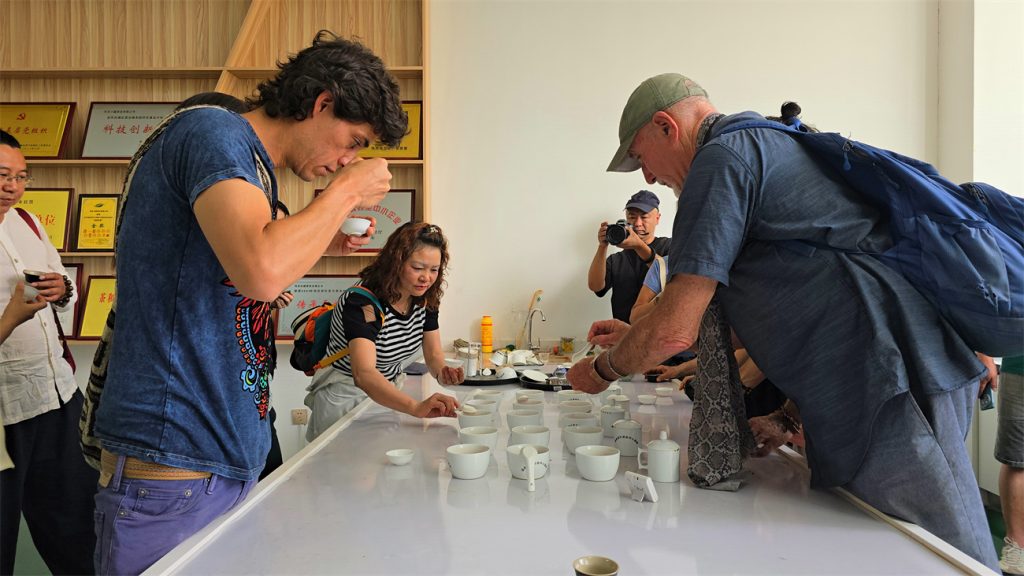
Day 3: Fengqing Dianhong Black Tea Tour
Sightseeing and Activities: Xiaowan Dam on the Lancang-Mekong River, Fenqing, Dianhong Tea Museum, Fenqing Tea Factory, Fengqing Tea Research Center. Dianhong Tea Factory, Anshi Tea Village and Plantation
Accommodation: fengqing country
Meals: Breakfast
- Morning Activities
- Start your morning by enjoying the stunning view of Xiaowan Dam on the Lancang-Mekong River.
- Then, drive from Xiaowan Township to Fengqing.
- Visit the Dianhong Tea Museum, the former Fengqing Tea Factory, and the Fengqing Tea Research Center (凤庆县茶科所).
- Afternoon Tours
- After lunch, tour the Dianhong Tea Factory (凤庆县工业区滇红集团) and Anshi Tea Village and Plantation (中国滇红诞生地安石).
- Here, you can taste the black tea and learn about the drying process of the tea leaves and production methods.
- Yunnan Black Tea Experience
- Yunnan black tea, also known as ‘Dianhong’ (‘Dian’ is the short name for Yunnan province, ‘hong’ meaning red due to the deep, red liquor of the brewed tea), is a fully oxidized tea grown in the high mountainous region of Lincang at elevations between 1680-1900 meters.
- The high elevations and mild climate provide a long growing season, with tea picking taking place from March through November.
- If you’ve never tried Yunnan black tea, you’re in for a treat. This tea offers a delicate smokiness on the nose and tongue, with layers of caramel and cocoa, and light, peppery notes on the finish.
- Evening Plans
- You will have dinner at Tongxin Fine Food Restaurant (同心美食楼), owned by Li Dehua (李德华), who is Charlie’s classmate.
- Stay overnight in Fengqing.
- This morning, enjoy the nice view of Xiaowan Dam in Lancang-Mekong River, drive from Xiaowan Township to Fengqing. Visit Dianhong Tea Museum, former Fengqing Tea Factory and Fengqing Tea Research Center(凤庆县茶科所).
Day 4: Fengqing-Ancient Tea Horse Road Hiking-Xilinshan Tea Garden
Sightseeing and Activities: Enjoy the local tea, Shidongsi Temple, Anhe Village.
Accommodation: Anhe Village
Meals: Breakfast
- Morning Tea Experience
- Start your morning by enjoying Dianhong milk black tea at the hotel reception. Fengqing Big Snow Mountain, Yunnan black tea is fermented and roasted, with tea polyphenols undergoing an oxidative reaction.
- Drinking Yunnan black tea with milk can help reduce inflammation, protect the gastric mucosa, and has certain benefits for treating ulcers.
- Drive to Shidongsi Temple
- Drive to Shidongsi Temple (Stone Cave Temple/石洞寺) and begin your hiking tour along the Ancient Tea Horse Road from Shidongsi to Fengqing Big Snow Mountain.
- During the hike, visit ancient tea trees in the original forest of Wanshoushan Mountain. After a 6-hour hike, you will reach Jiuyaojie Mountain Pass, where you can enjoy a panoramic view of the Xilinshan tea area.
- Continue to Tangzikou Village (塘子口), completing the Ancient Tea Horse Road hike, and set up camp around the tea garden.
- Evening Bonfire Party
- Enjoy a bonfire party with the help of local tea farmers and spend a pleasant camping night in Anhe Village (安和村), the origin of Xilinshan Ancient Tea (锡林山古茶) created by Charlie Lee (Li Rucan/李如灿).
- The local government will support us in arranging the tea tour and activities around Anhe Village in Xueshan Town (雪山镇).
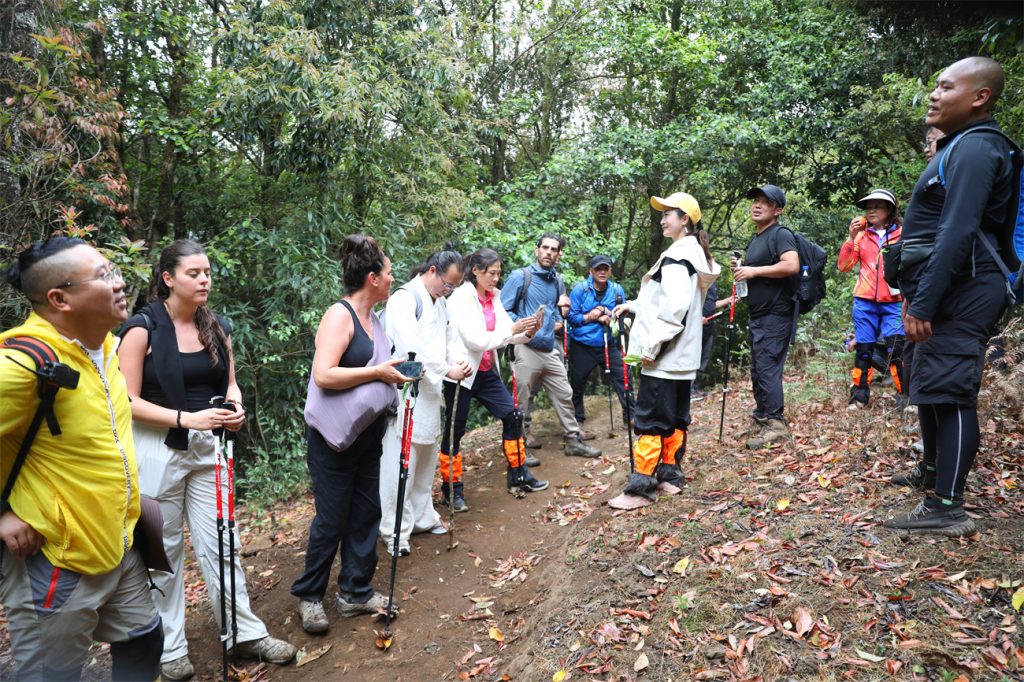
Day 5: Xilinshan -100KM/3 hours-Xigui-60KM/30minutes-Xigui-Lincang
Sightseeing and Activities: Enjoy the Diandong Black Tea, pick up tea leaves at XIlinshan, visit the natural Dakongbeng Hot Spring, cook eggs prepared by us in the wild hot spring
Accommodation: Dakongbeng Hot Spring
Meals: Breakfast
- Morning Activities
- This morning, enjoy a hands-on experience in making Dianhong Black Tea and picking tea leaves at the Xilinshan tea plantation in Anhe Village (安和村).
- Lunch and Tea Conference
- Have lunch in Xueshan Town and participate in a tea culture conference with local officials.
- Visit to Dakongbeng Hot Spring
- Drive along the Nanqiao Reservoir and visit the natural Dakongbeng Hot Spring (大控蚌温泉). Here, you can cook eggs prepared by us in the wild hot spring.
- Journey to Yunxian Country and Lincang City
- Continue driving to Yunxian County, then proceed to Lincang City.
- Meet with local officials for dinner and enjoy a Wa ethnic bonfire party with the Wa ethnic people. Stay overnight in Lincang City.
- Optional Visit to Xigui Ancient Tea Garden
- If time permits, visit the Xigui Ancient Tea Garden. Explore Manglu Tea Mountain in Xigui, located on the bank of the Lancang-Mekong River.
- Visit the Xigui tea factory and have lunch with a local family.
- Additionally, visit Nahan (纳罕) and Manggan (曼岗) tea villages.
- Xigui Tea Region
- Xi Gui, located in Lincang County, Lincang City, Yunnan, is developed along the bank of the Mekong River (referred to as Lincang Jiang in Chinese).
- The fertile soil enriched by the Mekong River is rich in calcium, contributing to the quality of the tea.
- The road to Xi Gui has recently been improved, reducing travel time to less than 5 hours by car from Lincang city center.
- This has attracted an increasing number of tourists and tea enthusiasts from China and abroad. Many are less experienced in evaluating tea quality, leading to the popularity of teas with a floral scent.
- This floral flavor is achieved through light frying of the tea, retaining more enzymes that develop the scent during sun-drying, similar to oolong tea.
- However, raw pu-erh tea produced with light pan-frying is not suitable for long storage, as it tends to develop a flavor similar to black tea, losing its original characteristics over time.
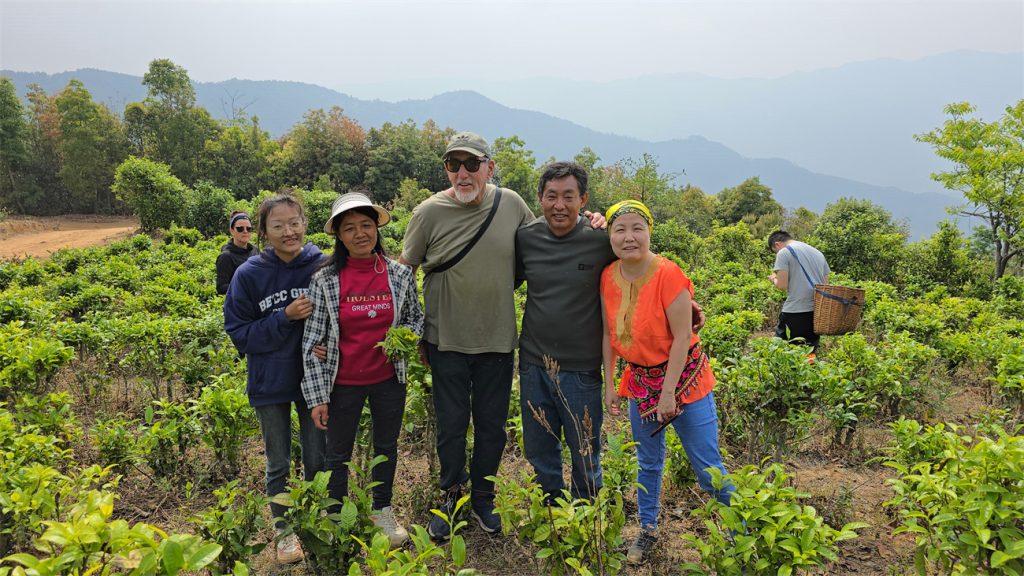
Day 6: Lincang-Mengku-Bingdao-Mengku-Xigui-Lincang
Sightseeing and Activities: Mengku Township, Luhu tribal village, f Bingdao including Dijie, Bingdao Laozhai, Bawai, Nanpo and Nuowu Village, Enjoy BIngdao Puerh Tea
Accommodation: Dahusai Village
Meals: Breakfast
- Early Morning Drive to Bingdao Village
- Begin the early morning with a drive to Mengku Township, followed by a journey to Bingdao Village (冰岛), a Lahu tribal village surrounded by verdant mountains.
- This village is the birthplace of tea cultivation in China. Here, you will encounter several massive ancient tea trees that are over 2000 years old.
- This rare and unique village is home to the Lahu people, who are known for their colorful traditional attire.
- Exploring the villages of Bingdao
- Visit the five villages of Bingdao, which include Dijie (地界), Bingdao Laozhai (冰岛老寨), Bawai (坝歪), Nanpo (南迫), and Nuowu Village (糯五). Experience the traditional tea-making process in Dijie Village and enjoy a lunch there.
- Bing Dao Puerh derives its name from Bing Dao Village in Mengku County, Yunnan Province, China. The name Bing Dao means “a village with a bamboo gate” in Thai.
- The local villagers, primarily from the Thai tribe, have a documented history of tea cultivation dating back to the 15th century. Bing Dao tea is made from ancient tea trees (gu shu) that are over 300 years old and is traditionally stone-pressed.
- The trees thrive on the sunny side of Bang Ma Mountain, at altitudes over 2500 meters above sea level. This high mountain tea brews sweet, rich, and refreshingly smooth, with almost no astringency.
- It has a lasting sweet after-taste (huigan) and is sheng jin in character, meaning it leaves the palate feeling quenched. The fragrance is lightly citrusy and floral, with a hint of wild honey.
- The Bing Dao cake is made with old tea leaves and is an excellent candidate for further aging.
- Afternoon Drive to Xiaohuisai and Dahusai Village
- In the afternoon, drive to Xiaohusai (小户赛) Tea Village and then to Dahusai Village. Stay overnight in a local hostel in the tea mountain.
- Optional tour to visit Xigui Tea Mountain in the afternoon.
- Transfer back to Lincang.
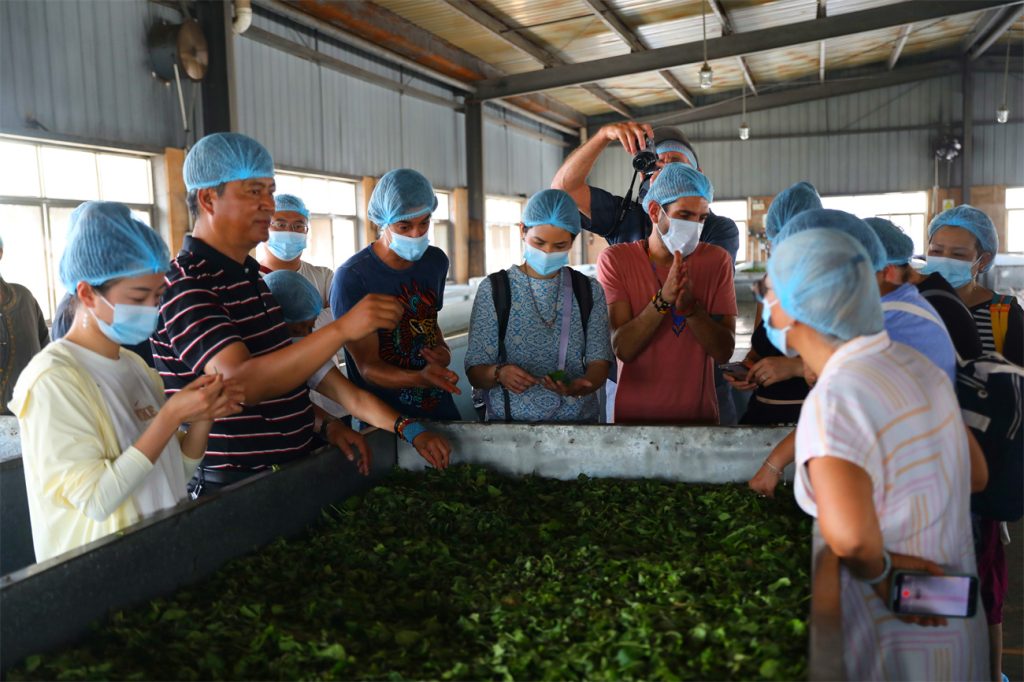
Day 7: Departure from Lincang
Visit Lincang Tea Market and Chama Old Town in the morning.
Take the speed train back to Kunming t catch your flight back.
Service ends.
Service Included:
- Admission fees for all of the sightseeing spots listed in the itinerary;
- Meals as listed in the itinerary; Dinners in tea mountains
- Boutique standard hotels and inns listed in the itinerary;
- English-speaking tour guide;
- 19-seat Private vehicle for transfers & sightseeing with skilled driver;
- Service charge & government taxes;
- Luggage transfers between airports and hotels;
- Yunnan Travel Insurance (云南旅游组合保险);
- Free-bottled mineral water everyday;
- Hiking tour in tea mountains
- Camping in Xilinshan Tea Mountain;
- Speed Train tickets from Kunming to Xiaowandong and from Lincang to Kunming.
Service Excluded:
- Any arrival and departure international airfares or train tickets;
- Chinese visa fees;
- Excess baggage charged by Airlines;
- Single room supplement;
- Tips to guides and drivers(300Yuan/Day/Group for the tour guide; 200Yuan/Day/Group for the driver);
- Personal expenses and gratuities to service staff;
- Personal travel accident insurance;
- All optional programs.
- Personal travel accident insurance.
Included and Excluded
- Admission fees for all of the sightseeing spots listed in the itinerary;
- Meals as listed in the itinerary; Dinners in tea mountains
- Boutique standard hotels and inns listed in the itinerary;
- English-speaking tour guide;
- 19-seat Private vehicle for transfers & sightseeing with skilled driver;
- Service charge & government taxes;
- Luggage transfers between airports and hotels;
- Yunnan Travel Insurance (云南旅游组合保险);
- Free-bottled mineral water everyday;
- Hiking tour in tea mountains
- Camping in Xilinshan Tea Mountain;
- Speed Train tickets from Kunming to Xiaowandong and from Lincang to Kunming.
- Any arrival and departure international airfares or train tickets;
- Chinese visa fees;
- Excess baggage charged by Airlines;
- Single room supplement;
- Tips to guides and drivers(300Yuan/Day/Group for the tour guide; 200Yuan/Day/Group for the driver);
- Personal expenses and gratuities to service staff;
- Personal travel accident insurance;
- All optional programs.
- Personal travel accident insurance.
Highlights of the Tour
- Explore Tea Plantations: Visit the renowned tea plantations in Dali, Lincang, Pu'er, and Xishuangbanna, where you'll learn about the cultivation and processing of Dianhong Black Tea and Pu'er Tea.
- Hike the Ancient Tea Horse Road: Experience the historic trade route that once connected Yunnan with Tibet and beyond, offering stunning landscapes and a glimpse into the past.
- Tea Factory Tours: Discover local tea factories and witness the traditional methods of tea production, from leaf picking to processing and packaging.
- Cultural Immersion: Engage with local tea farmers and participate in tea-tasting sessions to understand the unique flavors and qualities of Yunnan's famous teas.
- Historical Sites: Visit significant cultural and historical landmarks along the route, including ancient temples, palaces, and traditional villages.
- Scenic Beauty: Enjoy the breathtaking scenery of Yunnan's mist-covered mountains, lush green valleys, and picturesque landscapes.
- Tea Ceremonies: Experience authentic Chinese tea ceremonies and learn about the rich cultural heritage associated with tea drinking.
- Local Cuisine: Savor the diverse and delicious local cuisine, often paired with different varieties of tea to enhance your culinary experience.
Itinerary
A Journey into Yunnan’s Tea Culture
As you embark on a journey into the world of tea commerce, you’ll gain valuable insights into the rich tea culture of Yunnan Province and its significance in Chinese society.
Exploring the Local Tea Scene
Whether you’re a tea connoisseur or simply curious about local customs, visiting Kangle Tea Wholesale Market and Bangsheng Tea Wholesale Markets is an experience not to be missed.
Unforgettable Memories Await
Step into the vibrant markets and discover a world of aromatic teas, exotic flavors, and warm hospitality.
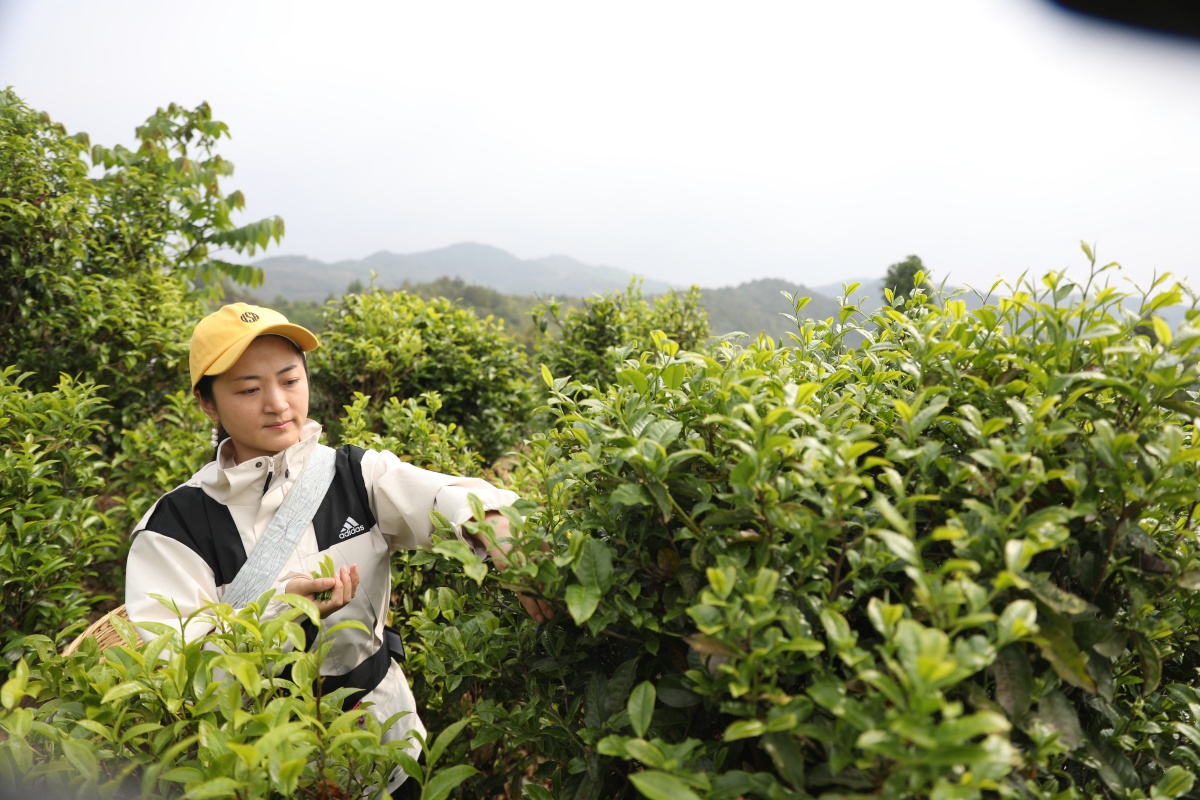
Meet Your Driver and Local Guide
Meet your driver and local guide at appointment place, then you will transfer to the Lancang-Mekong River, the upper reach of the Mekong River in China.
Visit to Xiaowan Dam
The Xiaowan Dam (小湾大坝) is an impressive arch dam located on the Lancang (Mekong) River in Nanjian County, Yunnan Province, southwest China.
The primary function of this dam is to generate hydroelectric power, and it is equipped with a 4,200 MW power station.
Built between 2002 and 2010 by Huaneng Power International at a cost of ¥32 billion (nearly US$3.9 billion), Xiaowan Dam is notable for being the world’s second-highest arch dam at 292 meters (958 feet).
It ranks third among all dam types in height, behind Jinping-I and Nurek, and is the third largest hydroelectric power station in China.
Drive to Xianzhuangqing villiage
Continue your journey to Xiangzhuqing Village in Xiaowan Township, Fengqing County.
Visit the Ancient Tea Tree
In Xiangzhuqing Village, you’ll encounter the impressive Xiangzhuqing Ancient Tea Tree, also known as Jinxiu Ancient Tea Tree (锦绣古茶树).
This enormous tree, affectionately referred to as the Mother Tea Tree, stands at about 35 feet tall, an extraordinary height for a tea tree.
Its trunk is so wide that it requires eight people with outstretched hands to fully encircle it. In addition to its immense size, this tree is notable for its remarkable history, being over 3,200 years old. It is fittingly called “the Mother of Tea Trees.”
Afternoon Transfer to Fengqing Country Town
In the afternoon, we will transfer to Fengqing Country Town.
Visit to 3200 Tea Garden
Explore the 3200 Tea Garden at the Wyndm Hotel, where you can enjoy a short hike around the scenic tea garden.
Tea Tasting Experience
Savor the refined Dianhong Black Tea and immerse yourself in a traditional tea art ceremony in Fengqing.

Morning Activities
Start your morning by enjoying the stunning view of Xiaowan Dam on the Lancang-Mekong River.
Then, drive from Xiaowan Township to Fengqing.
Visit the Dianhong Tea Museum, the former Fengqing Tea Factory, and the Fengqing Tea Research Center (凤庆县茶科所).
Afternoon Tours
After lunch, tour the Dianhong Tea Factory (凤庆县工业区滇红集团) and Anshi Tea Village and Plantation (中国滇红诞生地安石).
Here, you can taste the black tea and learn about the drying process of the tea leaves and production methods.
Yunnan Black Tea Experience
Yunnan black tea, also known as ‘Dianhong’ (‘Dian’ is the short name for Yunnan province, ‘hong’ meaning red due to the deep, red liquor of the brewed tea), is a fully oxidized tea grown in the high mountainous region of Lincang at elevations between 1680-1900 meters.
The high elevations and mild climate provide a long growing season, with tea picking taking place from March through November.
If you’ve never tried Yunnan black tea, you’re in for a treat. This tea offers a delicate smokiness on the nose and tongue, with layers of caramel and cocoa, and light, peppery notes on the finish.
Evening Plans
You will have dinner at Tongxin Fine Food Restaurant (同心美食楼), owned by Li Dehua (李德华), who is Charlie’s classmate.
Stay overnight in Fengqing.
This morning, enjoy the nice view of Xiaowan Dam in Lancang-Mekong River, drive from Xiaowan Township to Fengqing. Visit Dianhong Tea Museum, former Fengqing Tea Factory and Fengqing Tea Research Center(凤庆县茶科所).
Morning Tea Experience
Start your morning by enjoying Dianhong milk black tea at the hotel reception. Fengqing Big Snow Mountain, Yunnan black tea is fermented and roasted, with tea polyphenols undergoing an oxidative reaction.
Drinking Yunnan black tea with milk can help reduce inflammation, protect the gastric mucosa, and has certain benefits for treating ulcers.
Drive to Shidongsi Temple
Drive to Shidongsi Temple (Stone Cave Temple/石洞寺) and begin your hiking tour along the Ancient Tea Horse Road from Shidongsi to Fengqing Big Snow Mountain.
During the hike, visit ancient tea trees in the original forest of Wanshoushan Mountain. After a 6-hour hike, you will reach Jiuyaojie Mountain Pass, where you can enjoy a panoramic view of the Xilinshan tea area.
Continue to Tangzikou Village (塘子口), completing the Ancient Tea Horse Road hike, and set up camp around the tea garden.
Evening Bonfire Party
Enjoy a bonfire party with the help of local tea farmers and spend a pleasant camping night in Anhe Village (安和村), the origin of Xilinshan Ancient Tea (锡林山古茶) created by Charlie Lee (Li Rucan/李如灿).
The local government will support us in arranging the tea tour and activities around Anhe Village in Xueshan Town (雪山镇).

Morning Activities
This morning, enjoy a hands-on experience in making Dianhong Black Tea and picking tea leaves at the Xilinshan tea plantation in Anhe Village (安和村).
Lunch and Tea Conference
Have lunch in Xueshan Town and participate in a tea culture conference with local officials.
Visit to Dakongbeng Hot Spring
Drive along the Nanqiao Reservoir and visit the natural Dakongbeng Hot Spring (大控蚌温泉). Here, you can cook eggs prepared by us in the wild hot spring.
Journey to Yunxian Country and Lincang City
Continue driving to Yunxian County, then proceed to Lincang City.
Meet with local officials for dinner and enjoy a Wa ethnic bonfire party with the Wa ethnic people. Stay overnight in Lincang City.
Optional Visit to Xigui Ancient Tea Garden
If time permits, visit the Xigui Ancient Tea Garden. Explore Manglu Tea Mountain in Xigui, located on the bank of the Lancang-Mekong River.
Visit the Xigui tea factory and have lunch with a local family.
Additionally, visit Nahan (纳罕) and Manggan (曼岗) tea villages.
Xigui Tea Region
Xi Gui, located in Lincang County, Lincang City, Yunnan, is developed along the bank of the Mekong River (referred to as Lincang Jiang in Chinese).
The fertile soil enriched by the Mekong River is rich in calcium, contributing to the quality of the tea.
The road to Xi Gui has recently been improved, reducing travel time to less than 5 hours by car from Lincang city center.
This has attracted an increasing number of tourists and tea enthusiasts from China and abroad. Many are less experienced in evaluating tea quality, leading to the popularity of teas with a floral scent.
This floral flavor is achieved through light frying of the tea, retaining more enzymes that develop the scent during sun-drying, similar to oolong tea.
However, raw pu-erh tea produced with light pan-frying is not suitable for long storage, as it tends to develop a flavor similar to black tea, losing its original characteristics over time.

Early Morning Drive to Bingdao Village
Begin the early morning with a drive to Mengku Township, followed by a journey to Bingdao Village (冰岛), a Lahu tribal village surrounded by verdant mountains.
This village is the birthplace of tea cultivation in China. Here, you will encounter several massive ancient tea trees that are over 2000 years old.
This rare and unique village is home to the Lahu people, who are known for their colorful traditional attire.
Exploring the villages of Bingdao
Visit the five villages of Bingdao, which include Dijie (地界), Bingdao Laozhai (冰岛老寨), Bawai (坝歪), Nanpo (南迫), and Nuowu Village (糯五). Experience the traditional tea-making process in Dijie Village and enjoy a lunch there.
Bing Dao Puerh derives its name from Bing Dao Village in Mengku County, Yunnan Province, China. The name Bing Dao means “a village with a bamboo gate” in Thai.
The local villagers, primarily from the Thai tribe, have a documented history of tea cultivation dating back to the 15th century. Bing Dao tea is made from ancient tea trees (gu shu) that are over 300 years old and is traditionally stone-pressed.
The trees thrive on the sunny side of Bang Ma Mountain, at altitudes over 2500 meters above sea level. This high mountain tea brews sweet, rich, and refreshingly smooth, with almost no astringency.
It has a lasting sweet after-taste (huigan) and is sheng jin in character, meaning it leaves the palate feeling quenched. The fragrance is lightly citrusy and floral, with a hint of wild honey.
The Bing Dao cake is made with old tea leaves and is an excellent candidate for further aging.
Afternoon Drive to Xiaohuisai and Dahusai Village
In the afternoon, drive to Xiaohusai (小户赛) Tea Village and then to Dahusai Village. Stay overnight in a local hostel in the tea mountain.
Optional tour to visit Xigui Tea Mountain in the afternoon.
Transfer back to Lincang.
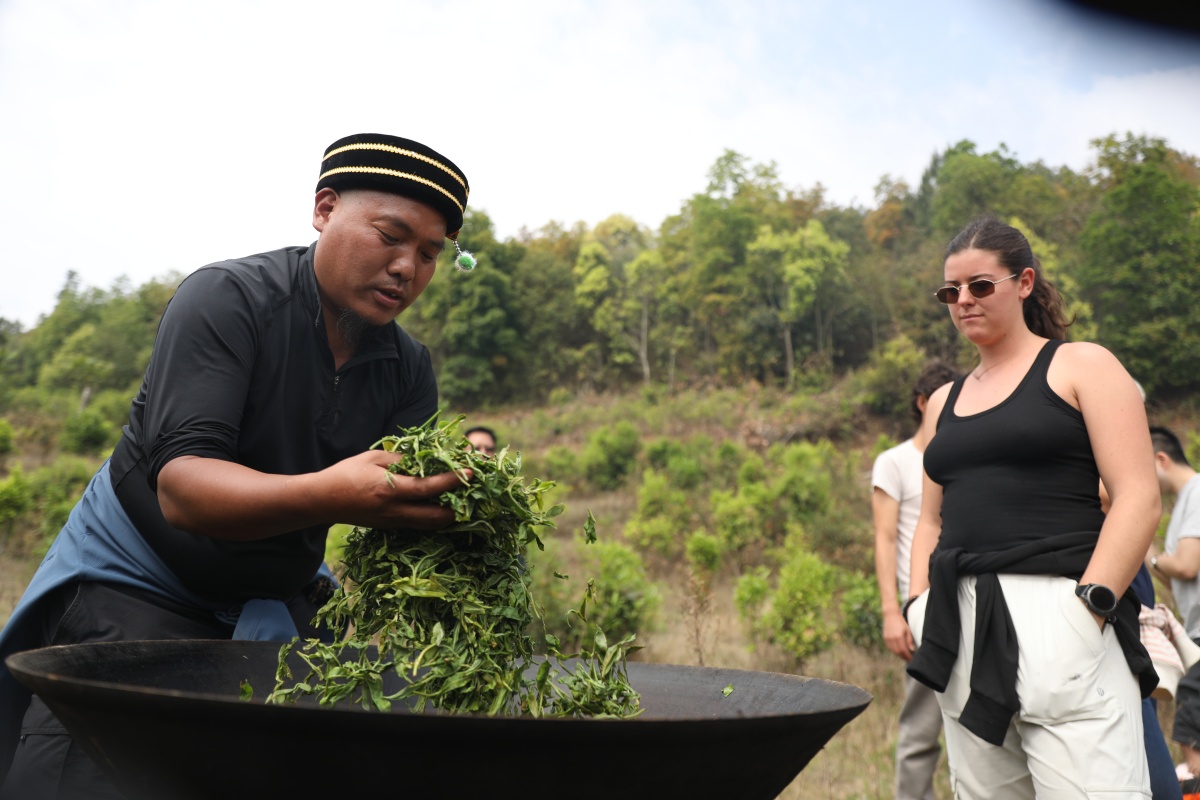
Visit Lincang Tea Market and Chama Old Town in the morning.
Take the speed train back to Kunming t catch your flight back.
Service ends.
Location Map
Frequently Asked & Question
Book Your Tour
Reserve your ideal trip early for a hassle-free trip; secure comfort and convenience!

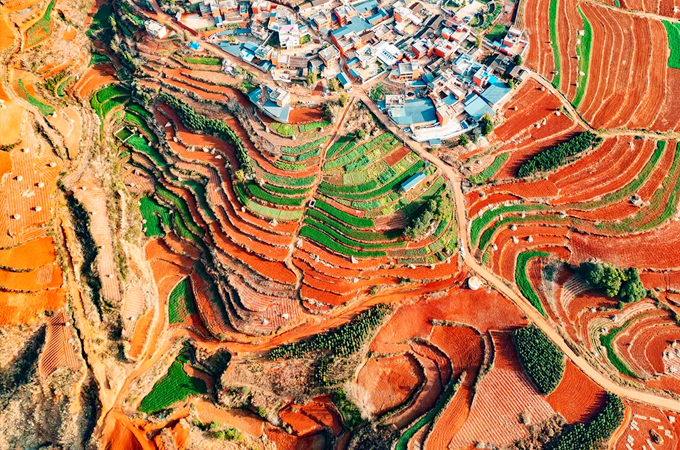

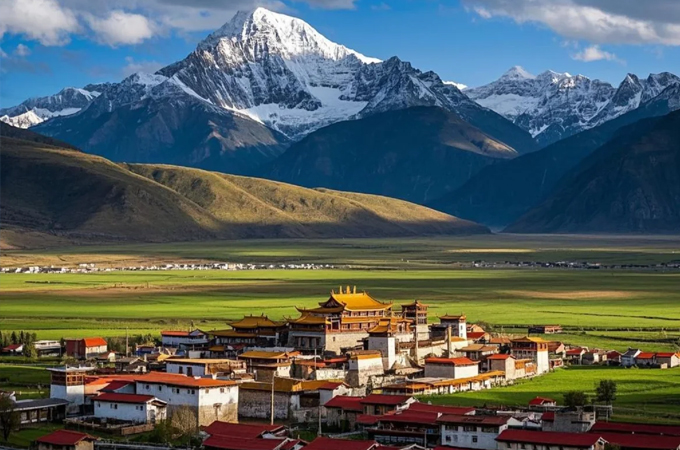
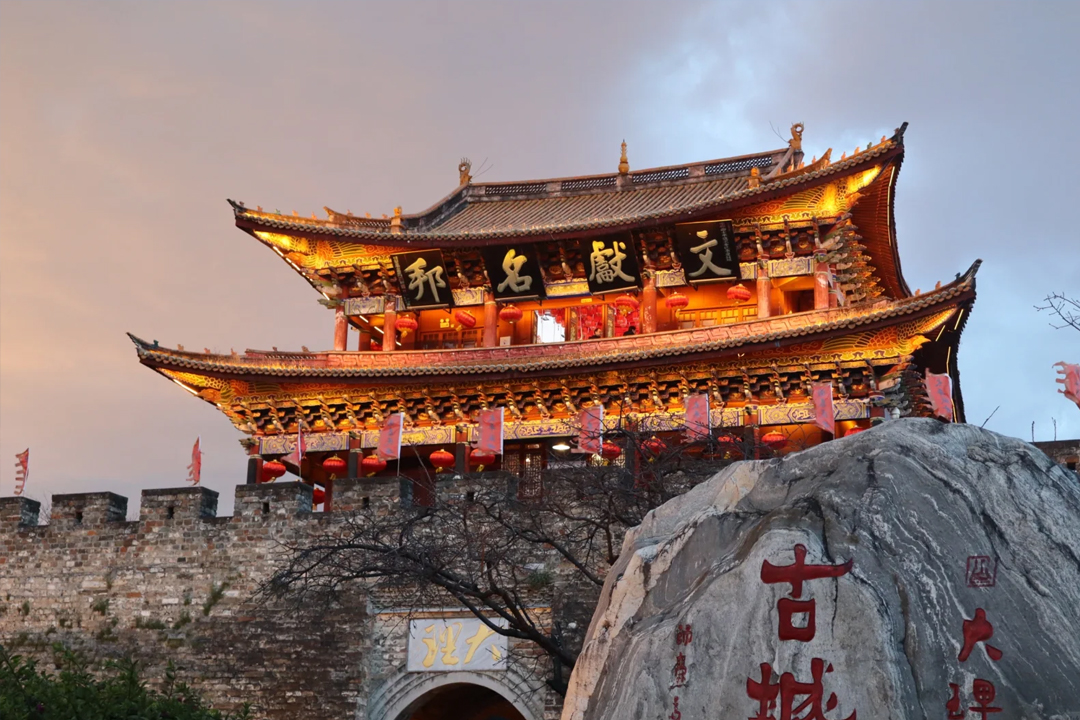
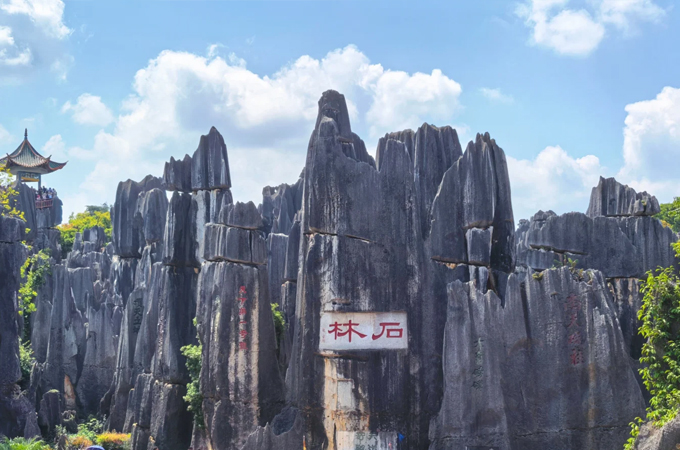

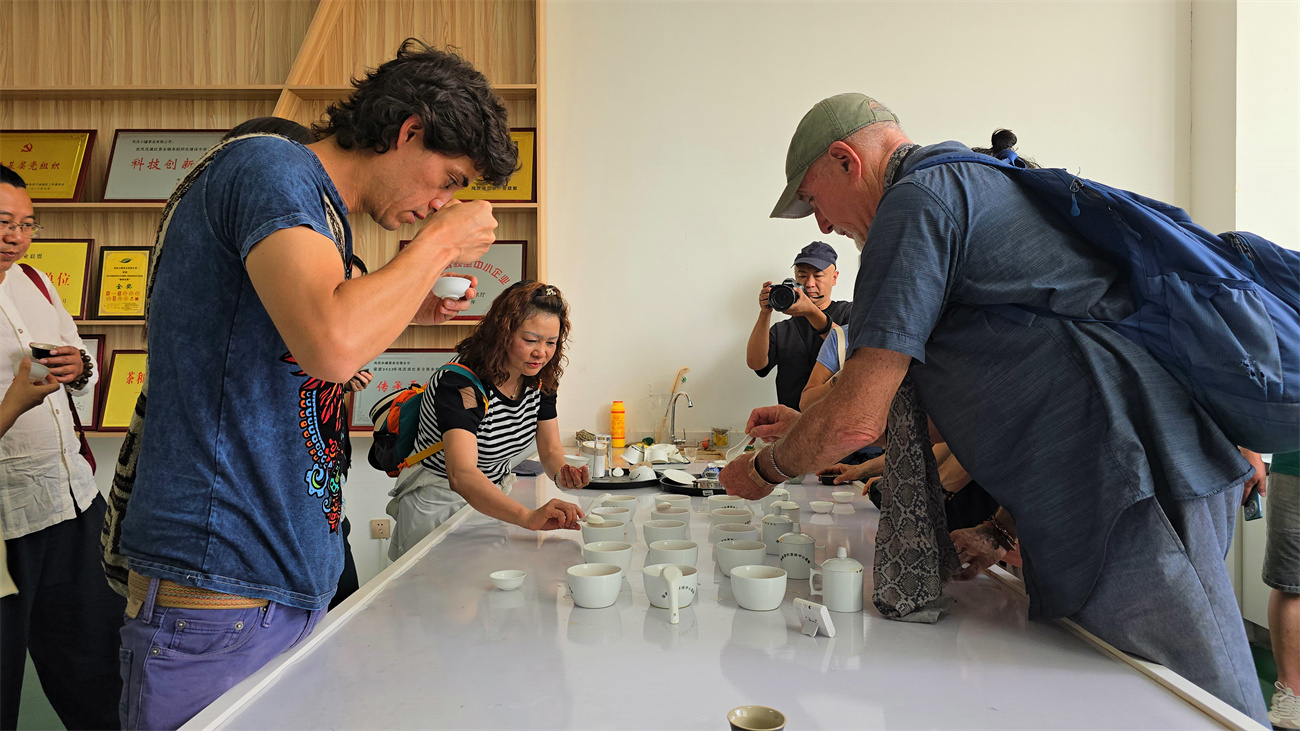
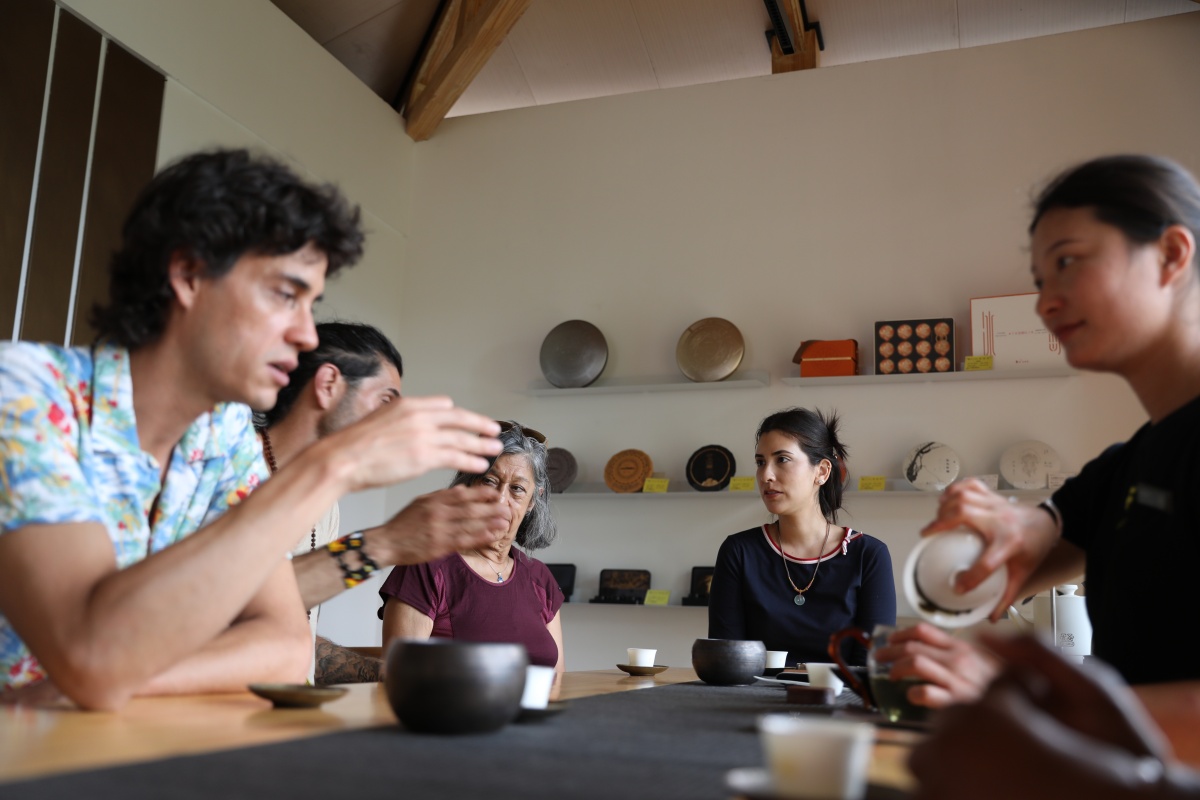
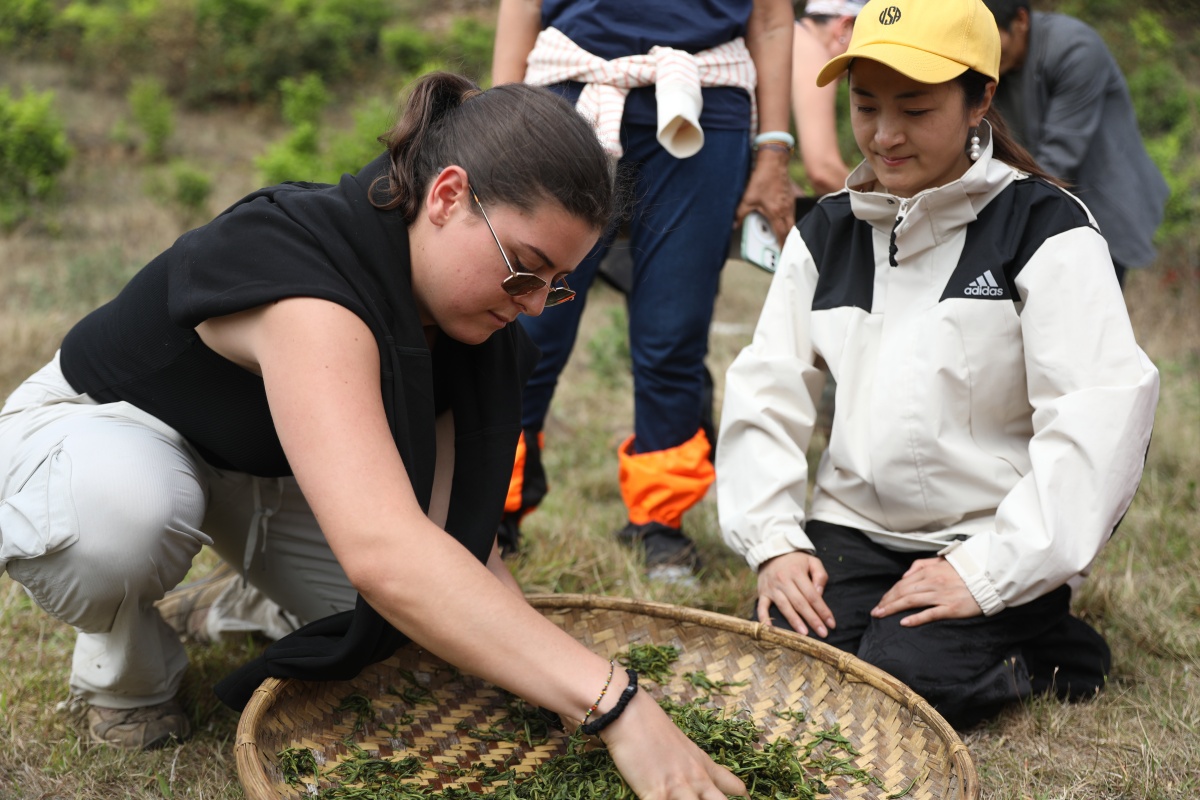
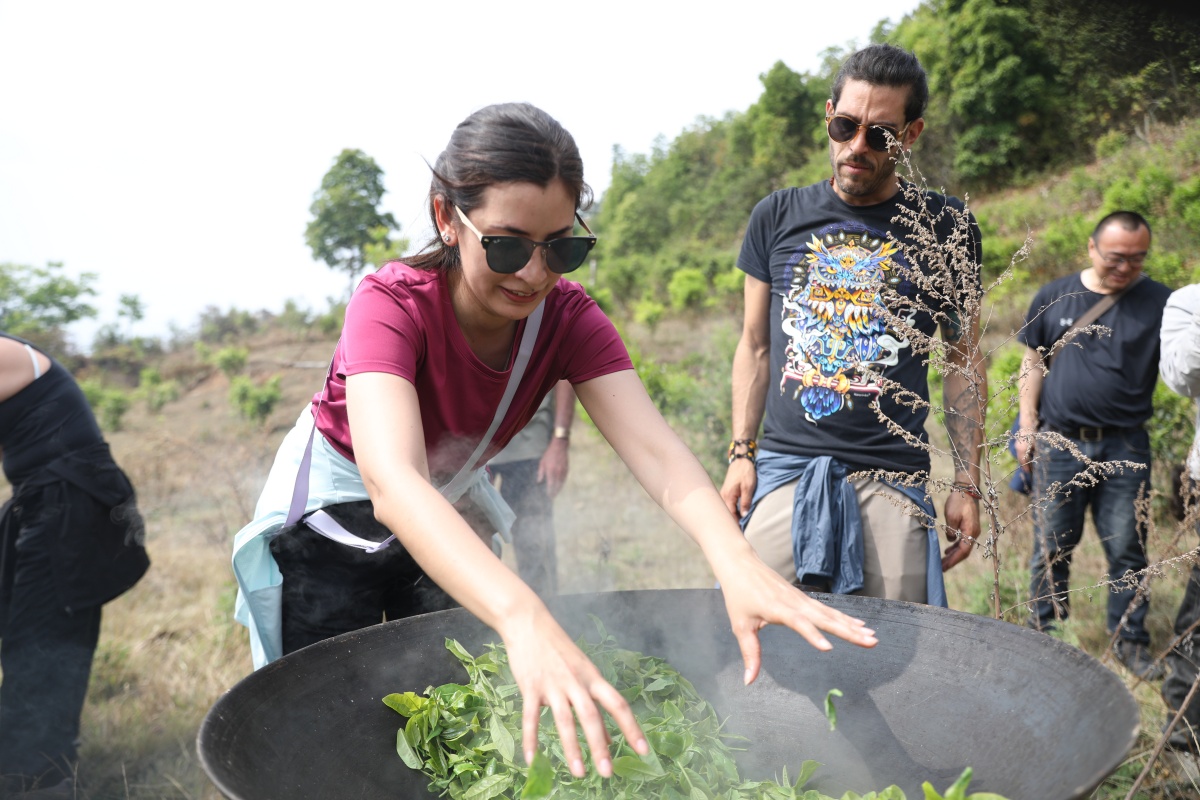
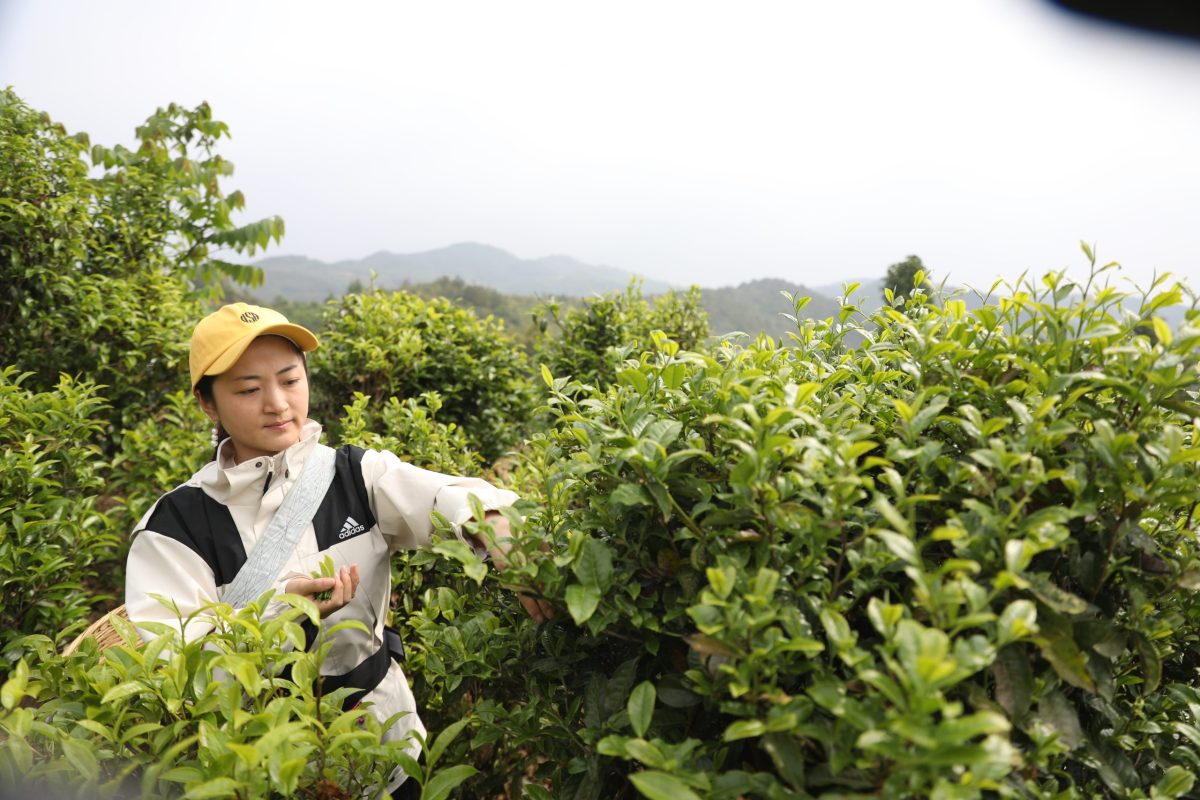
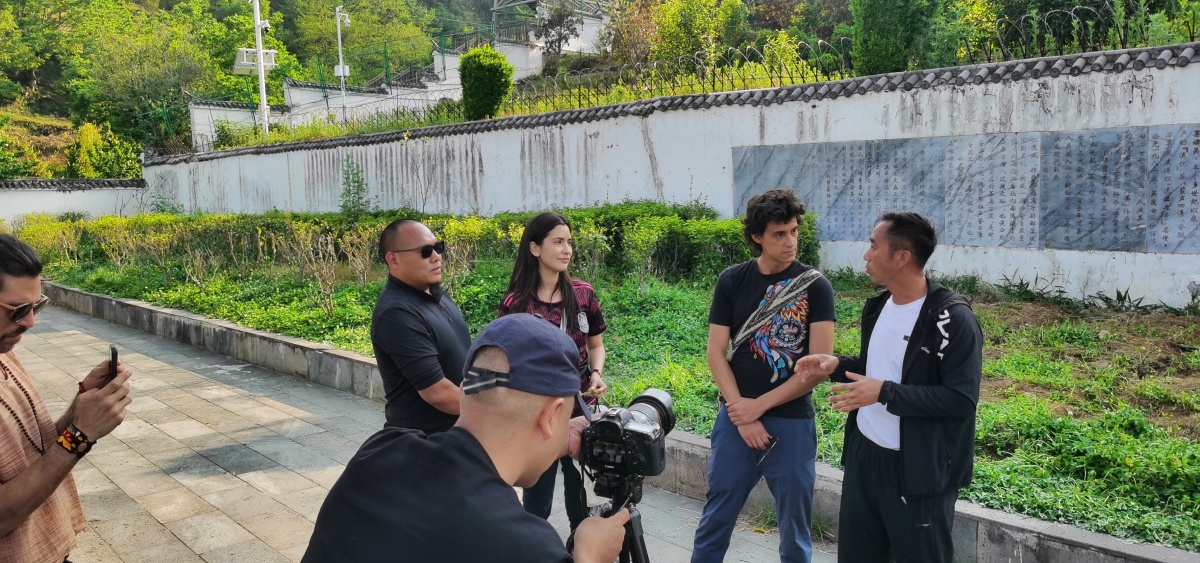

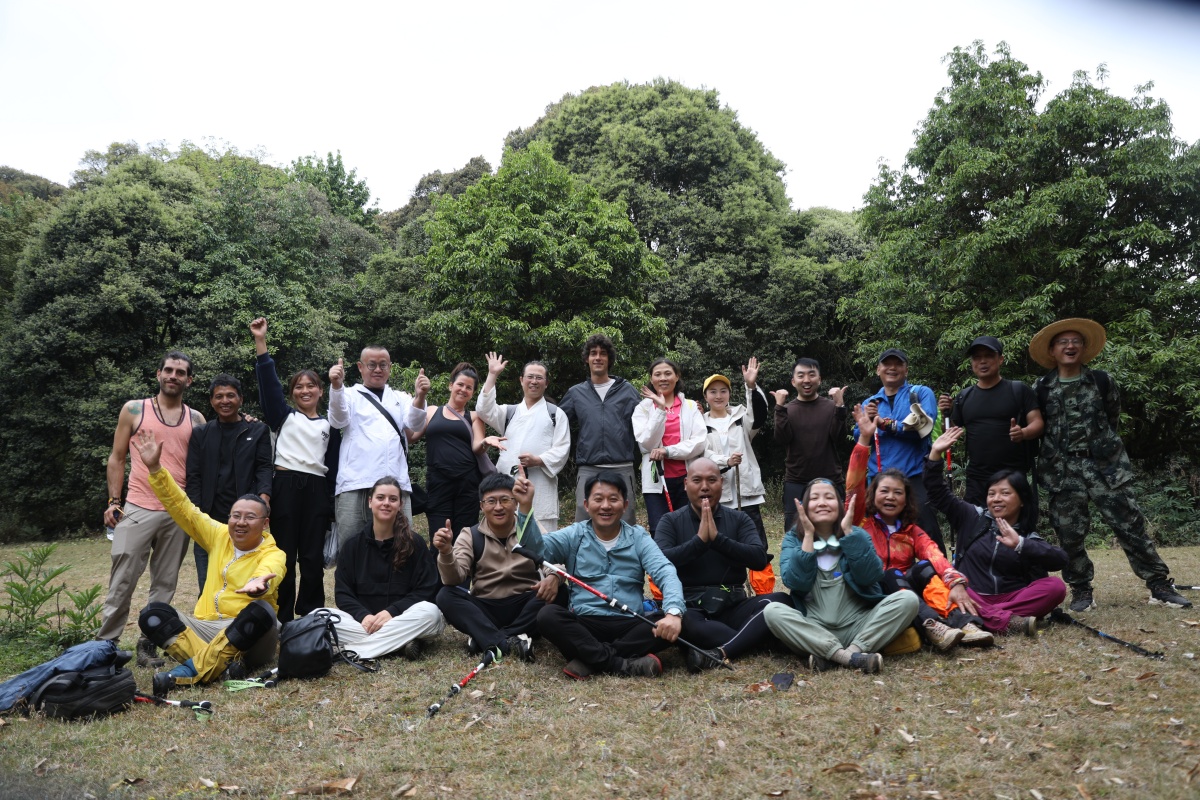
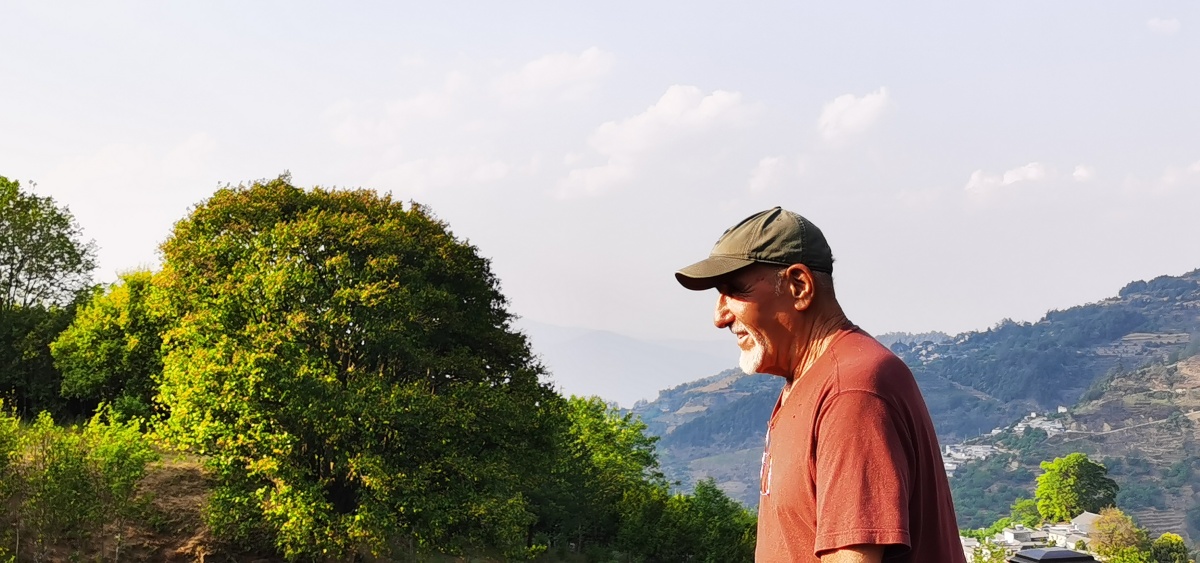



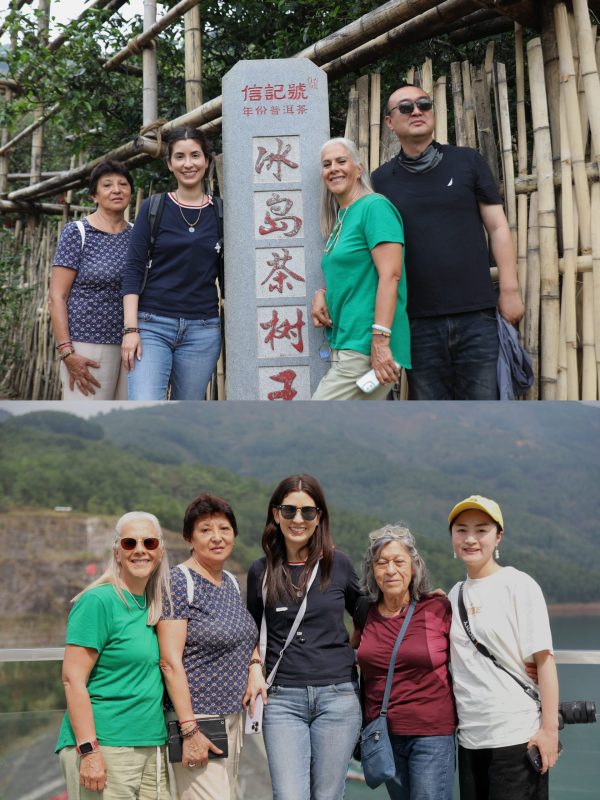
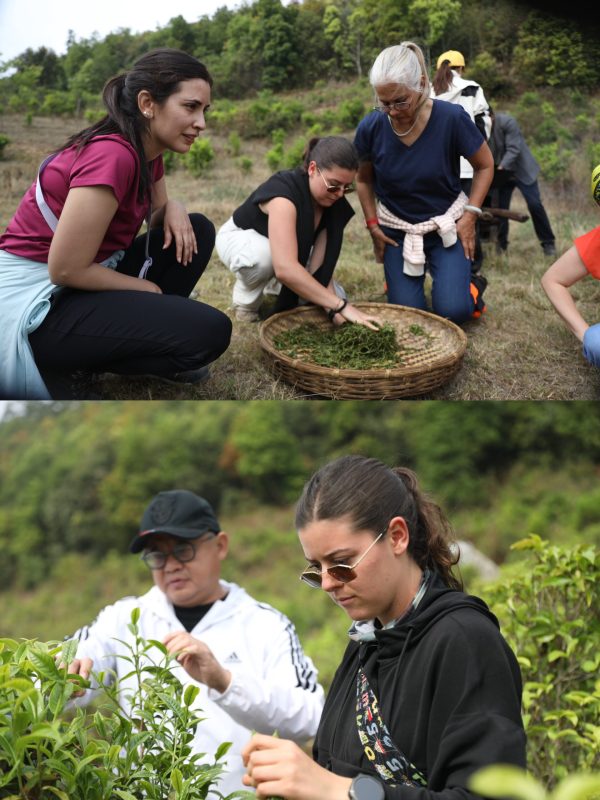




Leave a comment: